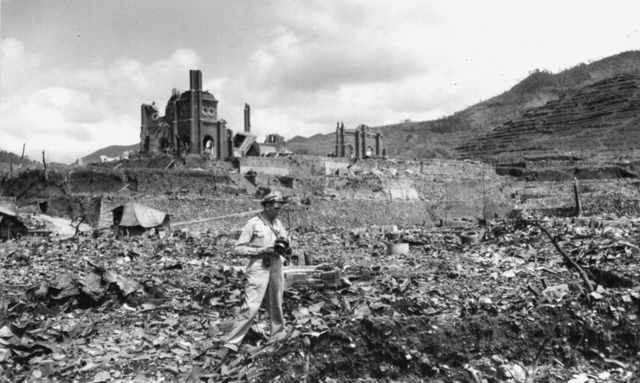Japan on Wednesday commemorated the 80th anniversary of the atomic bombing of Hiroshima, with thousands bowing their heads at 8:15 a.m., the exact time a U.S. bomber dropped the uranium bomb "Little Boy" on the city, killing approximately 78,000 people instantly and tens of thousands more in the following months. The ceremony, held at Hiroshima Peace Memorial Park, drew representatives from 120 countries, including nuclear powers such as the United States and Israel.
Mayor Kazumi Matsui used the occasion to caution world leaders against a resurgence in nuclear armament. "Among the world's political leaders, there is a growing belief that possessing nuclear weapons is unavoidable in order to protect their own countries," he said. "This situation not only nullifies the lessons the international community has learned from the tragic history of the past, but also seriously undermines the frameworks that have been built for peace-building."
The twin bombings of Hiroshima on August 6 and Nagasaki on August 9, 1945, ushered in an era of nuclear warfare that ended World War II but left Japan with a national trauma that has defined its pacifist identity. That identity, forged in Article 9 of the postwar constitution drafted during the U.S. occupation, renounces war as a means of settling disputes and has kept Japan's military activity limited for decades.
But the country's security posture is evolving. In recent years, Japan has ramped up military cooperation with the United States, participated in joint drills near flashpoints like the South China Sea, and begun upgrading its Self-Defense Forces' command structure. Earlier this year, U.S. Defense Secretary Pete Hegseth met with Japanese officials to accelerate missile co-production and deepen operational integration.
Prime Minister Shigeru Ishiba reaffirmed Japan's commitment to a "Free and Open Indo-Pacific," while also pledging naval support to the Philippines and improved ties with South Korea.
The shift in tone was evident in commemorations, where discussions of peace were laced with warnings about present-day risks. "Ukraine today may be East Asia tomorrow," former Prime Minister Fumio Kishida said during his 2023 visit to Kyiv - the first by a Japanese leader to an active war zone since World War II.
Experts warn that global instability, including Russia's war in Ukraine and North Korea's missile launches, is testing Japan's pacifist boundaries. "Conflicts no longer seem regional but interconnected," a senior Japanese official told local press, pointing to the increasing complexity of the geopolitical landscape.
Kazuko Hikawa, Vice Director of the Research Center for Nuclear Weapons Abolition at Nagasaki University, noted that the return of nuclear deterrence rhetoric reflects a dangerous global paradox. "Countries chase nuclear weapons thinking it will stop others from attacking them with nuclear weapons," she told ABC News. "Nuclear deterrence may prevent nuclear war, but it actually increases the risk of conflict involving conventional weapons."
Despite its historical experience, Japan is not a signatory or observer to the U.N. Treaty on the Prohibition of Nuclear Weapons, drawing criticism from anti-nuclear advocates. One of the most vocal groups, Nihon Hidankyo - formed by survivors in 1956 - continues to call for global disarmament. "We atomic bomb survivors call on all countries to sign and ratify the Treaty on the Prohibition of Nuclear Weapons for peace," reads a recent flyer from the group.
The number of hibakusha, as atomic bomb survivors are known, has dropped below 100,000 for the first time this year. Yet many, like 92-year-old Tomoko Matsuo, remain determined to share their stories.
"I was working on the sewing machine when I heard a huge sound," Matsuo recalled of the Nagasaki blast. She survived, but her older sister Eiko was gravely burned and died shortly after. "This young life was lost. It's unbearable. She wanted to see her family, and she worked enormously hard to come home."
U.S. Ambassador George Glass attended Wednesday's ceremony and is expected to join the Nagasaki commemoration later this week. His remarks emphasized the strength of the U.S.-Japan alliance and the importance of reconciliation.






